
Jean-Paul Charles Belmondo was a French actor. Initially associated with the New Wave of the 1960s, he was a major French film star for several decades from the 1960s onward, frequently portraying police officers and criminals in action thriller films. His best known credits include Breathless (1960), That Man from Rio (1964), Pierrot le Fou (1965), Borsalino (1970), and The Professional (1981). An undisputed box-office champion like Louis de Funès and Alain Delon of the same period, Belmondo attracted nearly 160 million spectators in his 50-year career. Between 1969 and 1982 he played four times in the most popular films of the year in France: The Brain (1969), Fear Over the City (1975), Animal (1977), Ace of Aces (1982), being surpassed on this point only by Louis de Funès.
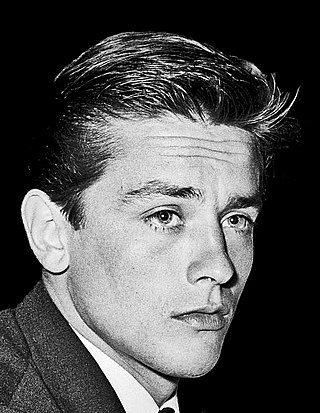
Alain Fabien Maurice Marcel Delon was a French actor, film producer, screenwriter, and singer. Acknowledged as a cultural and cinematic leading man of the 20th century, Delon emerged as one of the foremost European actors of the 1960s, 1970s, and 1980s, and became an international sex symbol. He is regarded as one of the most well-known figures of the French cultural landscape. His style, looks, and roles, which made him an international icon, earned him enduring popularity.

Claude Sautet was a French film director and screenwriter.
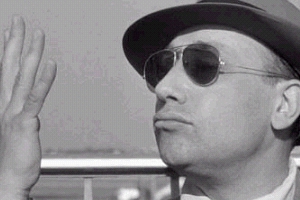
Jean-Pierre Grumbach, known professionally as Jean-Pierre Melville, was a French filmmaker. Considered a spiritual godfather of the French New Wave, he was one of the first fully-independent French filmmakers to achieve commercial and critical success. His works include the crime dramas Bob le flambeur (1956), Le Doulos (1962), Le Samouraï (1967), and Le Cercle Rouge (1970), and the war films Le Silence de la mer (1949) and Army of Shadows (1969).
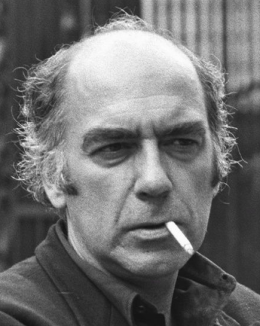
Jacques Deray was a French film director and screenwriter. Deray is prominently known for directing many crime and thriller films.
Henri Decaë was a French cinematographer who entered the film industry as a sound engineer and sound editor. He was a photojournalist in the French army during World War II. After the war he began making documentary shorts, directing and photographing industrial and commercial films. In 1947 he made his first feature film.
Pierre Granier-Deferre was a French film director and screenwriter

Maurice Ronet was a French film actor, director, and writer.
Michel Creton is a French actor.
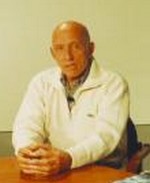
José Giovanni was the pseudonym of Joseph Damiani, a French writer and film-maker of Corsican origin who became a naturalized Swiss citizen in 1986.
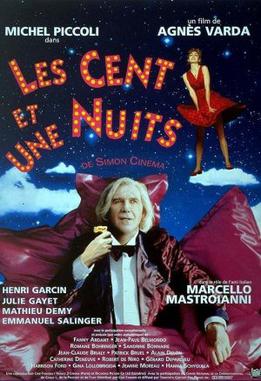
One Hundred and One Nights is a 1995 French comedy film directed by Agnès Varda. A light-hearted look at 100 years of commercial cinema, it celebrates in vision and sound favourite films from France, Germany, Italy, Japan, and the USA. It was entered into the 45th Berlin International Film Festival.

Borsalino is a 1970 French gangster film directed by Jacques Deray and starring Jean-Paul Belmondo, Alain Delon and Catherine Rouvel. It was entered into the 20th Berlin International Film Festival. In 2009, Empire named it No. 19 in a poll of "The 20 Greatest Gangster Movies You've Never Seen… Probably". A sequel, Borsalino & Co., was released in 1974 with Alain Delon in the leading role. The film is based on real-life gangsters Paul Carbone and François Spirito, who collaborated with Nazi Germany during the occupation of France in World War II.

La Piscine is a 1969 psychological thriller film directed by Jacques Deray, starring Alain Delon, Romy Schneider, Maurice Ronet, and Jane Birkin.
Christopher Frank was a British-born French writer, screenwriter, and film director. He won the 1972 Prix Renaudot for his novel La Nuit américaine that served the basis for Andrzej Zulawski's film That Most Important Thing: Love.

Three Men to Kill is a French crime film released in 1980, directed by Jacques Deray, starring Alain Delon with Dalila Di Lazzaro. The screenplay is written by Jacques Deray, Alain Delon and Christopher Frank based on the novel Le Petit Bleu de la côte ouest by Jean-Patrick Manchette.
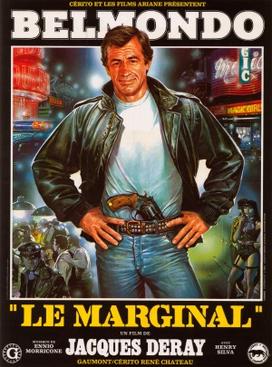
Le Marginal is a 1983 French crime film directed by Jacques Deray and starring Jean-Paul Belmondo. The music for the film was composed by Ennio Morricone.
Yvan Chiffre was a French director, producer, and stunt coordinator. He is the father of Philippe Chiffre, Romain Chiffre and the grand father of César Chiffre.
Xavier Depraz, néXavier Marcel Delaruelle was a French opera singer and actor.











